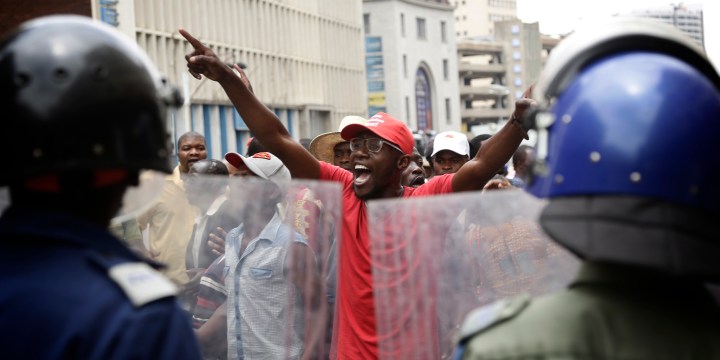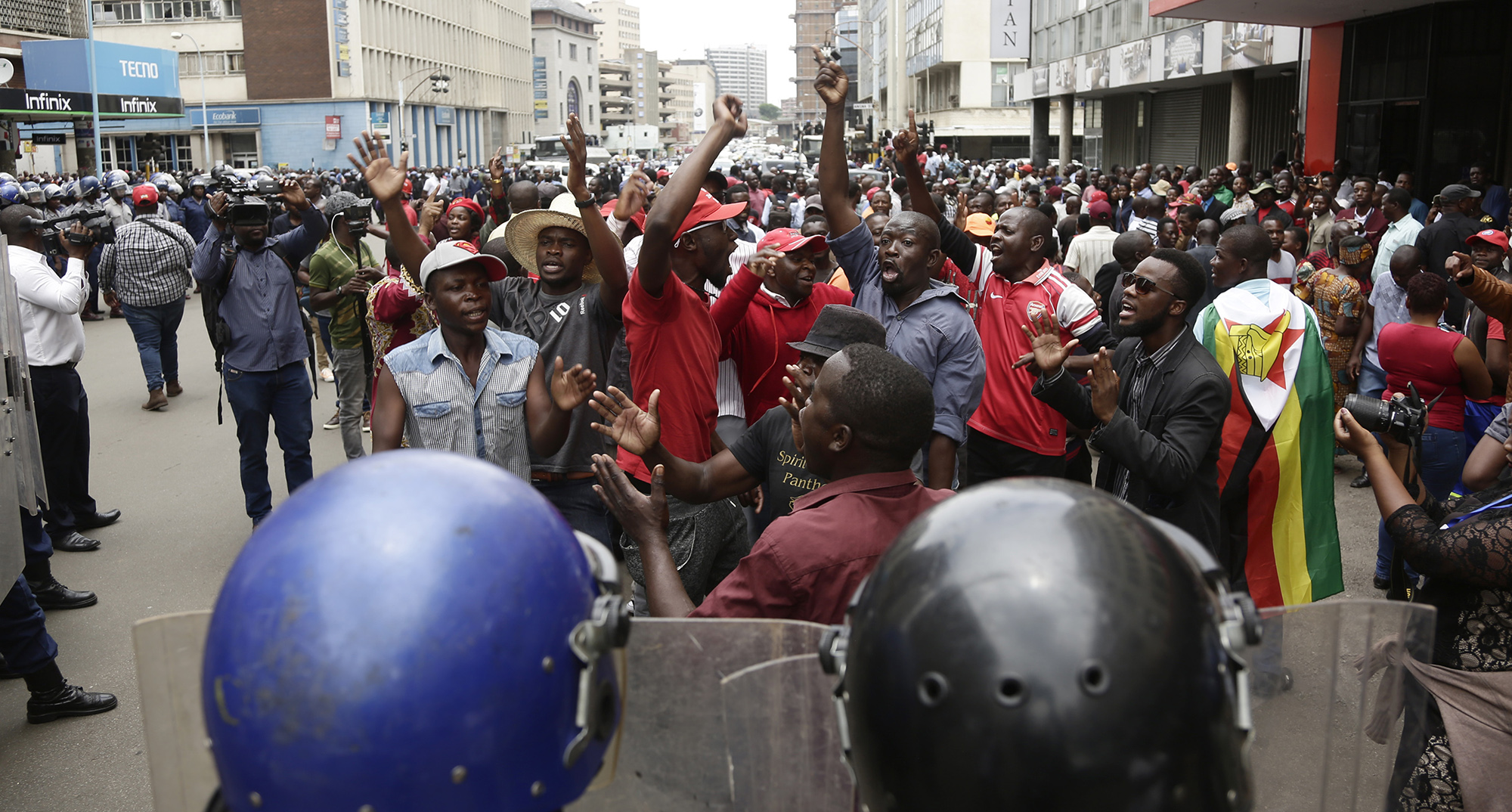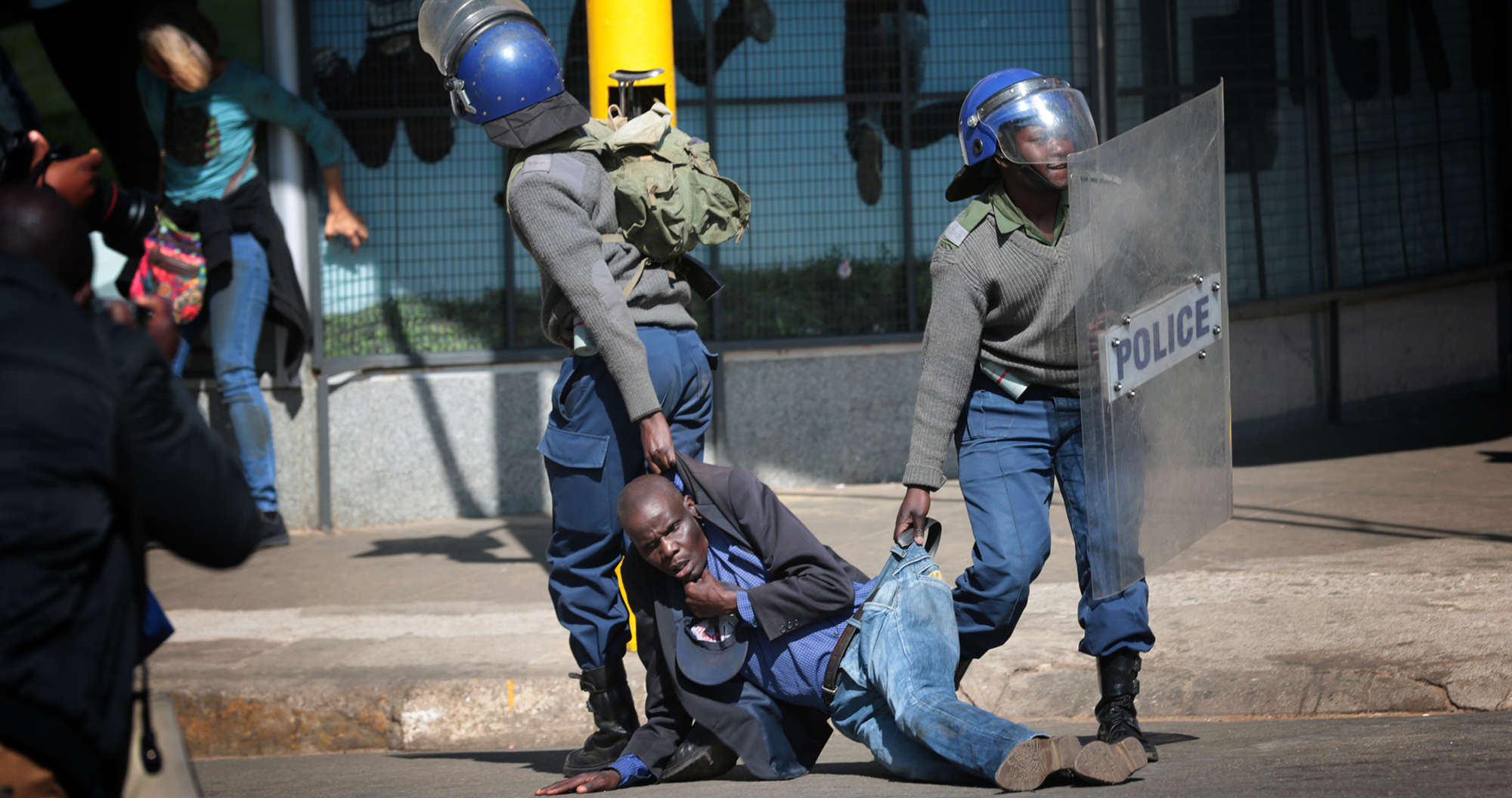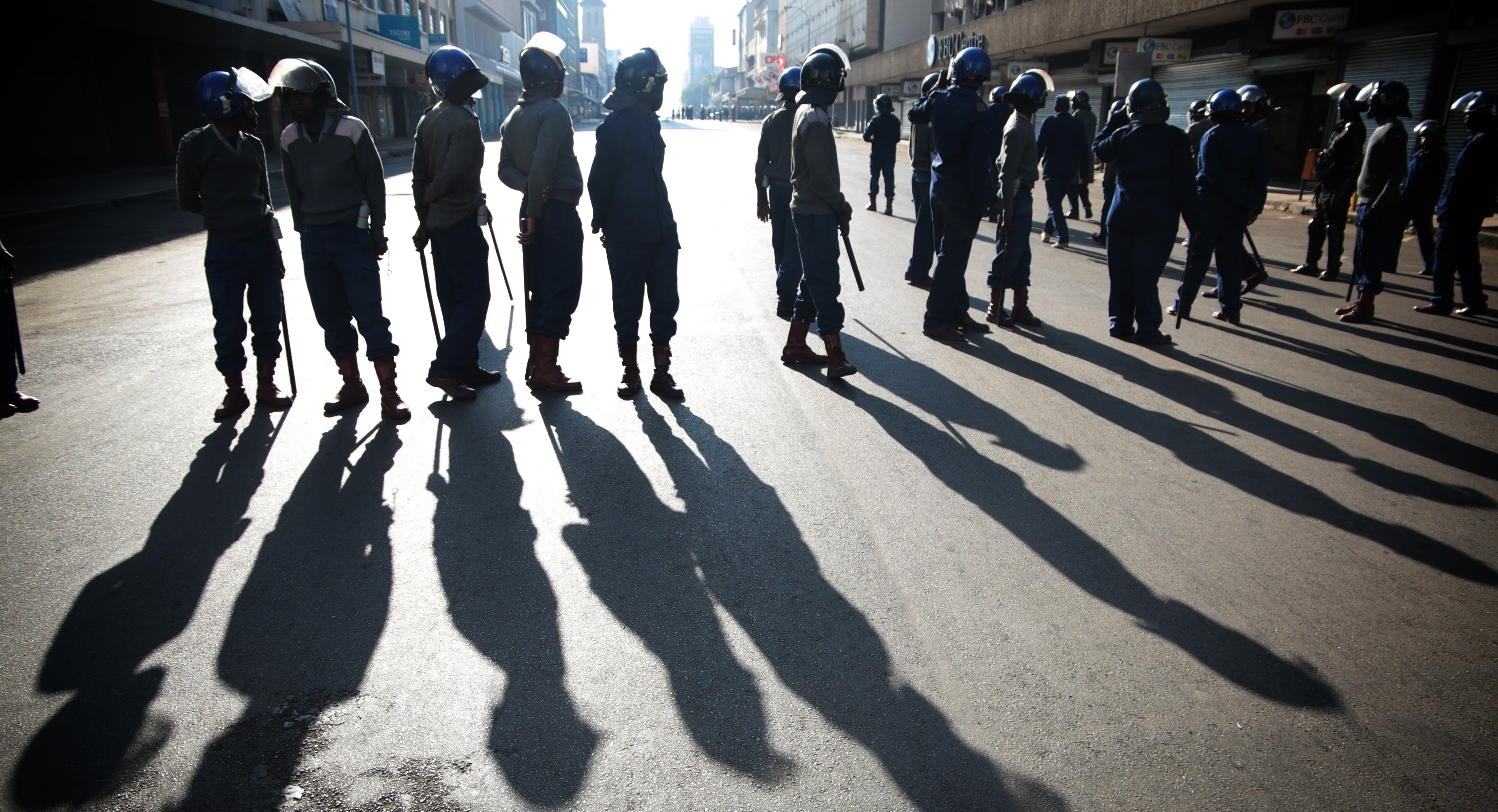NORTHERN EXPOSURE OP-ED
Killing off democracy by silencing civil society — the real implications of Zimbabwe’s PVO Bill

For Zanu-PF and the government to link combating terrorism with issues concerning political party support and tightening registration requirements for NGOs is to pervert the intention behind anti-money laundering and controlling illicit financial flows. It betrays the real intentions: To silence civil society ahead of elections, to curtail civil society’s ability to monitor elections, and to prevent reporting on violence, intimidation and electoral fraud.
In the furore over the Zimbabwe government’s determination to pass the Private Voluntary Organisations Amendment Bill into law and its attack on civil liberties, the motivation behind this attempt at rule by law seems to have been forgotten. The real issue is elections that are due in 2023 and a preemptive attempt to curtail the reporting by civil society of the intimidation and violence that accompanies polls in Zimbabwe — along with a demonstration of the overwhelming evidence that this is done by the government itself and members of the ruling Zanu-PF.
Every election since 2000 has been accompanied by violence and intimidation. Sometimes, as in 2000, 2002, and 2008, the violence is extreme, causing even the Southern African Development Community (SADC) and the African Union (AU) to criticise the process. Other elections have been marked by less overt violence, but by extensive complaints of intimidation and manipulation, what can be described as “anticipatory” rigging.

Police officers keep an eye at protesting Movement For Democratic Change (MDC) supporters outside the party headquarters in Harare, Zimbabwe, 20 November 2019. (Photo: EPA-EFE / Aaron Ufumeli)
The 2023 elections will be the most complex and bitter since 2000, and it is clear they offer the last chance for Zanu-PF and the Zimbabwe government to cure the coup. A disputed election will seriously damage any prospect for international re-engagement, and it is here that civil society provides a major threat through its ability to document electoral irregularities, not only violence and intimidation.
Thus, the strategic motivation behind the PVO Bill is to muzzle civil society under the thin guise of dealing with the problem of money laundering and illicit financial flows to support terrorism. The PVO Bill purports to deal with the problem of civil society organisations funding terrorism or terrorist groups and claims to be an attempt to be compliant with recommendations of the Mutual Evaluation Reports (MER) of the East and Southern African Anti-Money Laundering Group (ESAAMLG) under the Financial Action Task Force (FAFT) standards.

Zimbabwe Republic Police (ZRP) drag an injured protester during clashes with people who took part in the Democratic Change (MDC) Alliance organised Peace March in Harare, Zimbabwe, 16 August 2019. (Photo: EPA-EFE / Aaron Ufumeli)
Here we unpack how the Zimbabwe government has manipulated the process of being compliant with the requirements of the FAFT in dealing with “anti-money laundering and combatting the financing of terrorism” in order the solve a political problem over elections.
Since the first assessment of Zimbabwe by ESAAMLG in 2007, one of the areas for compliance under FAFT has been the establishment of mechanisms to prevent NGOs from providing illicit financial support to terrorist groups. However, it was agreed between the Zimbabwe government and the ESAAMLG that this was not a serious problem in Zimbabwe. As was pointed out in the 2007 MER, “the authorities are not aware of the existence of any terrorist financing activities in Zimbabwe”. Actually, the Zimbabwe government agreed that the main problems around illicit financial flows were:
- Drug trafficking;
- Illegal trade and smuggling of precious minerals, metals and stones;
- Parallel market activities involving foreign currency and commodities by individuals and companies;
- Corruption, in particular practices in the fuel industry involving both private and public institutions;
- Misrepresentation of quality, nature and value of exports; and
- Armed robbery and theft of motor vehicles and stolen vehicle re-registration.
These are all still problems today in 2022. They have been detailed in reports on the extent of corruption in Zimbabwe and the involvement of senior government officials (see here, here and here): NGOs are never mentioned.
Beyond this, there has been no single case of an NGO in Zimbabwe found engaging in money laundering or financing terrorist activity.
Nonetheless, any serious attempt to counter the funding of terrorism must under FAFT provide mechanism for curbing this and must consider the role of possible NGO involvement. This the Zimbabwean government promised to do, and its first attempt to be compliant was deemed inadequate.
It was required to carry out an assessment of high-risk non-profit organisations (NPOs). The comment from the 2019 ESAAMLG report, titled Anti-money laundering and Counter-terrorist financing measures. Zimbabwe. Technical Compliance Re-Rating, is instructive:
“Zimbabwe has conducted a risk assessment of the NPO sector in the country. Based on the assessment, the country has identified six NPOs as posing high risk. The six NPOs funded religious activities, orphans and vulnerable children with funds from countries perceived by the country as high TF risk jurisdictions. The assessment, however, is not comprehensive enough to identify the subset of organisations falling within the FATF definition of NPO and the authorities have not demonstrated that they have considered all sources of information from supervisors, FIU, tax authorities, intelligence, donor organisations or law enforcement, to identify the types of NPOs based on their activities or characteristics, that are likely to be at risk of TF abuse. The country has also not advised whether it has started periodical reassessment of the sector by reviewing new information on the sector’s potential vulnerabilities to terrorist activities to ensure effective implementation of measures. Zimbabwe is currently in the process of reviewing the adequacy of the Private and Voluntary Organizations Act which governs the registration and operation of NPOs. The proposed amendments are currently undergoing Parliamentary process.”
Thus, the PVO Bill enters into the picture, and it is instructive that the timing is after the flawed election in 2018 and the rising problems faced by the “New Dispensation” government and the coup in 2017, including the failed international re-engagement exercise.
Visit Daily Maverick’s home page for more news, analysis and investigations
The issue that should be addressed, and is abundantly clear in all the MERS from 2007, all nine of them, is that the Zimbabwe government must first undertake a risk assessment of the NGO sector and identify which areas of NGO activity are prime candidates for funding terrorism and terrorist organisations. This must precede the establishment of any legislation or regulation to control such a problem. There is no evidence that the government has done this.
It is also necessary under FAFT that this process should be inclusive and involve civil society. There is no evidence that the government has done this either.
Bearing all of this in mind, it is immediately obvious that the inclusion of sections in the PVO Bill that refer to support for political parties is definitely what is not included in the definitions of illicit funding. No democratic country would claim that support for a political party is terrorism, but, of course, many countries do just this.

Members of the Zimbabwe Republic Police (ZRP) block the road to contain the planned Movement For Democratic Change Alliance Peace March in Harare, Zimbabwe, 16 August 2019. (Photo: EPA-EFE / Aaron Ufumeli)
Hiding the prohibition of political support (which is undefined in the bill) under the guise of preventing the funding of terrorism is, however, what this government is doing, and nearly every day the government and government spokespersons accuse opposition political parties and civil society of “regime change”, and even bluntly accuse both sectors of being terrorists.
It subverts the entire democratic process when elections that are all about changing a regime — changing the “regime” that is elected to run the government and the state, are re-defined as overthrowing a government and the state. This is what elections are, processes for changing regimes.
Section 3 of the Constitution of Zimbabwe, which outlines founding values and principles, states that one of the principles of good governance which binds the state include a multi-party democratic political system, and an electoral system based on universal adult suffrage and equality of votes, free, fair and regular elections and adequate representation of the electorate. Other principles that are stated in Section 3 include the orderly transfer of power following elections.
For Zanu-PF and the government to use the exercise of combating terrorism to including issues about supporting political parties, tightening registration requirements for NGOs and introducing executive control over NGOs, is to pervert the whole intention behind anti-money laundering and controlling illicit financial flows. It betrays the real intention, to silence civil society ahead of the elections; to curtail civil society’s ability to monitor and expose attempts to subvert genuine elections; and to prevent reporting on violence, intimidation, and electoral fraud.
Little is new here. We are not saying anything that is not being said elsewhere.

Protesters block a major road leading into the city centre in Kuwadzana, Harare, Zimbabwe, 14 January 2019. (Photo: EPA-EFE / Aaron Ufumeli)
The UN Human Rights Council had strong things to say in the aftermath of Zimbabwe’s report on the Universal Periodic Review: Belgium, Brazil, France, Ireland, Netherlands, Mexico, Norway, the UK and the US all made recommendations that contradict the intention behind the PVO Bill. Several UN Special Rapporteurs have also voiced concerns about the PVO Bill. The UN Special Rapporteur on the Rights to Freedom of Peaceful Assembly and of Association was one of these. The bill has received a wholly negative response from Zimbabweans civil society, with at least one organisation threatening legal action.
The PVO Bill as presented in its latest version would provoke a storm of criticism in any SADC or African country and should be condemned as profoundly rejecting the true values of pan-Africanism. It is not a trivial intervention by the government, but an attempt to destroy civil society through a crude attempt to keep political power by silencing citizens and citizen organisations from refereeing an election. The PVO Bill should be rejected in its entirety by everyone: Zimbabweans, Africans and the international community. DM/MC
Tony Reeler is senior researcher at the Research and Advocacy Unit (RAU), Dzikamai Bere is director of ZimRights, and Musa Kika is director of the Zimbabwe Human Rights NGO Forum. They write in their personal capacities.



















 Become an Insider
Become an Insider
Comments - Please login in order to comment.